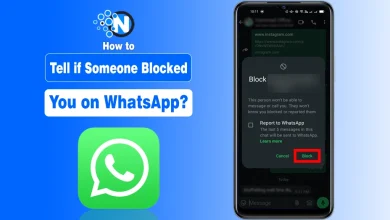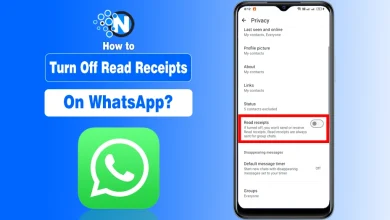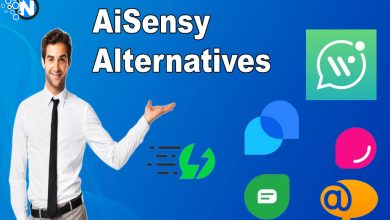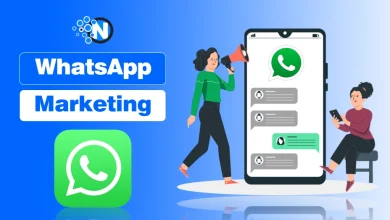How Does WhatsApp Make Money Even its Ads-Free

We all use WhatsApp without subscriptions and even without any ads. It’s surprising that a 3 billion-plus user platform does not allow advertisement or subscription, but still, users can use it for free.
WhatsApp started as a Messaging platform in 2009 with $1 fee a one-time fee in certain areas, but later Facebook bought it in 2014 and abolished the fee. But many people like me often think, if WhatsApp is free and doesn’t show ads, then how does it actually make money?
In this guide, I have discussed how WhatsApp make money and what its business model is.
<strong>WhatsApp Business History</strong>
WhatsApp was launched by Jan Koum and Brian Acton in 2009, as both are former Yahoo employees. It was used as a messaging app to stay connected with experience ads.
Early in the starting days, WhatsApp charged $1 per year or a one-time fee according to regions for users. This subscription was the primary source of income for WhatsApp at that time.
However, in 2014, Facebook bought WhatsApp for $19 billion and dropped its subscription fee to make it free for everyone.
How Does WhatsApp Generate Income?
WhatsApp does not earn money directly from user subscriptions or ads. Instead, WhatsApp makes money through business services.
WhatsApp Business API
WhatsApp Business API is one of the primary sources of income for WhatsApp. It was established in 2018, and now WhatsApp makes billions of dollars from it. It allows medium to large companies to interact with thousands (or even millions) of customers around the world.
How Businesses Use the API:
- Customer Service: Many business industries use it for their customers, like Airlines send boarding passes, banks send transaction alerts, and retailers send order confirmations.
- Notifications: Businesses use the WhatsApp API services to deliver updates, appointment reminders, or payment alerts.
- Marketing: It is also used for marketing purposes such as brand promotion, product sales or discounts, or product launches.
How It Makes Money:
- WhatsApp charges businesses per conversation (24-hour window) or per message, which depends on the country.
- Larger the business → more customer interactions → more revenue for WhatsApp.
Click-to-WhatsApp Ads
Meta uses its huge ad network on Facebook and Instagram to push Click-to-WhatsApp ads. These ads let people tap and instantly start chatting with a business on WhatsApp.
The ads run on Meta’s other platforms, but they bring more customers and activity to WhatsApp. This way, WhatsApp indirectly helps Meta earn money through its overall advertising system.
How It Works in Detail:
- Businesses run ads on Facebook and Instagram with a “Message on WhatsApp” button.
- Users who click the ad are redirected to a WhatsApp chat with the business.
- Businesses pay Meta for the ad campaign, and WhatsApp becomes the direct contact tool.
- This is highly effective because people prefer chatting with a business before making a purchase.
In 2024, click-to-WhatsApp ads generated nearly $10 billion for Meta, showing how valuable this model is.
WhatsApp Pay
WhatsApp Pay is an in-chat digital payment system that enables users to send and receive money directly within the WhatsApp messaging app. It is only available in a few areas, especially India and Brazil.
How It Works:
- Users can link bank accounts or cards to send/receive money directly within WhatsApp.
- Businesses can accept payments, which makes WhatsApp a complete “shopping + communication” platform.
- WhatsApp charges small fees for payment transactions.
WhatsApp Future Monetization
WhatsApp is ad-free, but Meta is planning to show ads in the Status section of WhatsApp, similar to how ads appear in Instagram Stories.
If this happens, it could become a new way for WhatsApp to make money by using its huge number of users for targeted ads. The feature hasn’t been rolled out yet, but it shows that WhatsApp may move toward an ad-based revenue model in the future.
Future monetization plans include:
- Ads: Meta will introduce ads to WhatsApp, including search ads and promotions within the Channels feature.
- Subscriptions: WhatsApp is exploring subscriptions as a way for creators and businesses to earn money, particularly through Channels.
Sum Up
So, even though WhatsApp is free for everyone, it makes money through Business Api, Business app, and click-to-WhatsApp ads. As it has a billion users worldwide, businesses use it to reach their customers for marketing purposes.
WhatsApp’s success shows that you don’t always need ads to build a profitable platform; you just need the right business model.
People Also Ask
1. Is WhatsApp completely free to use?
Yes, WhatsApp is 100% free for personal users. You can send unlimited messages, calls, photos, and videos without paying anything.
2. Does WhatsApp sell user data?
No, WhatsApp does not sell personal user data. However, it does share limited data with its parent company, Meta, for improving services and ad targeting across Facebook and Instagram.
3. What is WhatsApp Business, and is it free?
WhatsApp Business is a free app for businesses. It helps them create a verified profile, promote products, and communicate with customers professionally.
4. How much money does WhatsApp make per year?
As of 2023–2024, WhatsApp’s revenue is estimated at $1.3 to $1.8 billion annually, mostly from business services and ads linked to Meta’s ecosystem.
5. Will WhatsApp show ads in the future?
Yes, Meta has announced that WhatsApp will start showing ads in the Updates tab (Status & Channels), but not inside personal chats. This could generate billions in new revenue.
6. Can I use WhatsApp for payments?
In some countries like India and Brazil, WhatsApp offers a payment feature where users can send money or businesses can accept payments directly in the app.




